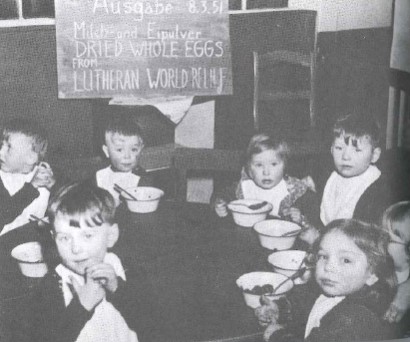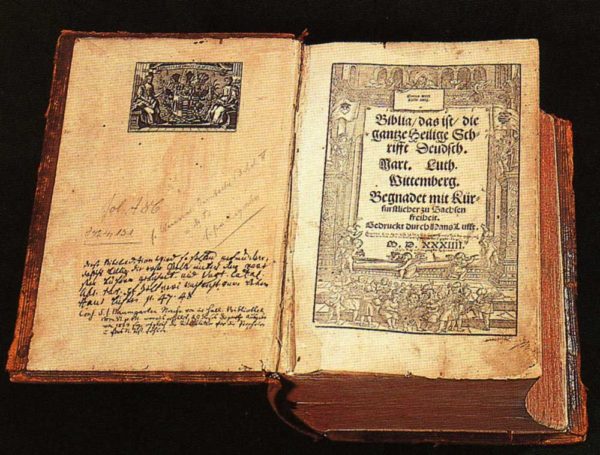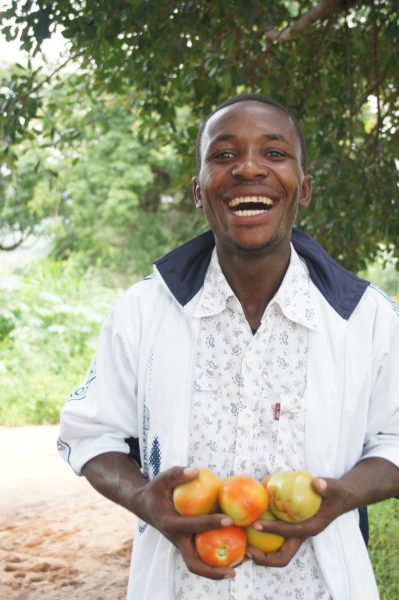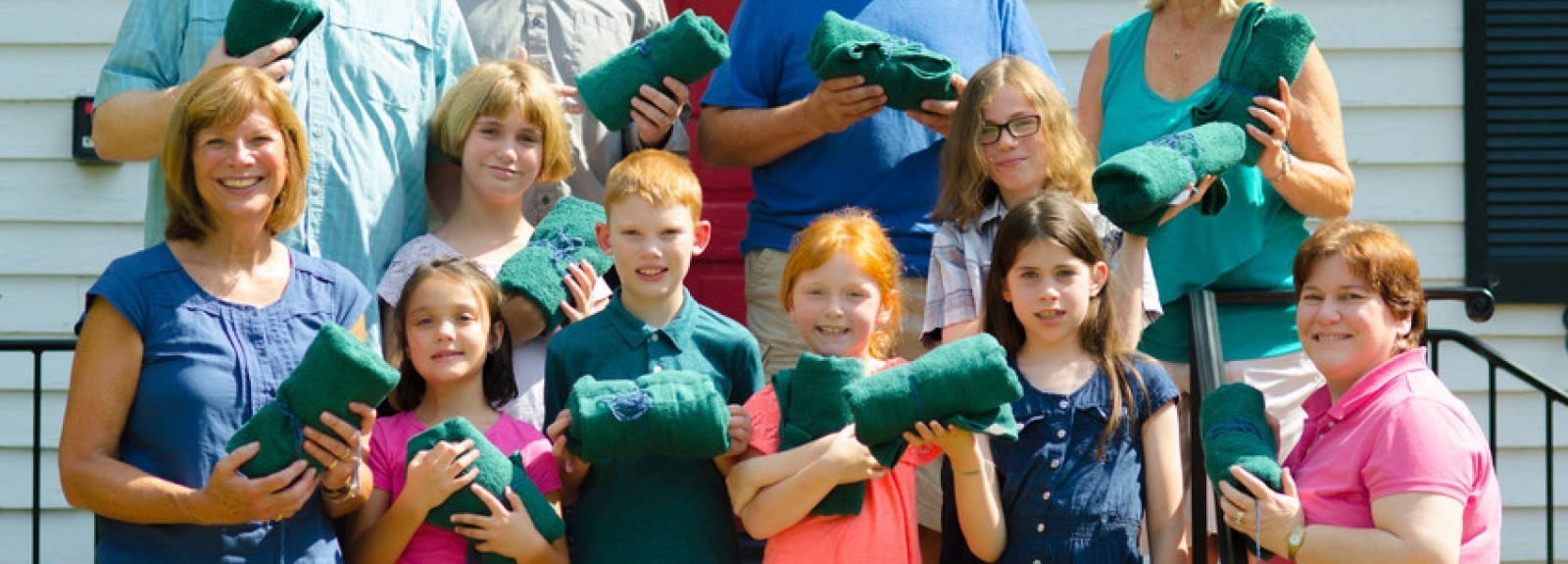What does it mean to be “Lutheran?”
If you asked 100 Lutherans that question, you’d probably get 100 different answers. In the United States, we often joke that being Lutheran means drinking lots of coffee after church and having a casserole for Sunday dinner. But, at its simplest, being Lutheran means being a child of God who is part of a theological tradition extending from Martin Luther, the German monk who started the Reformation 500 years ago.
At Lutheran World Relief, our connection to Luther remains central to who we are. Our mission, vision and core values remain uniquely Lutheran to this day, and the support we enjoy from people like you - faithful Lutherans in the United States - keeps our work grounded in this proud tradition.
Here are a few of the ways we live into our identity as Lutheran World Relief.
Humble Origins
When Luther first nailed his 95 Theses to the door of All Saints’ Church in Wittenberg, Germany, in 1517, he never imagined he would spark a worldwide movement that carries on to this day. The stakes of his Theses were focused and geographically contained. But Luther’s work quickly expanded, both in content and in location. He developed new doctrines and new liturgies. His ideas spread to places like Switzerland, Sweden, England, France and the Netherlands. This German monk, once troubled by the sale of indulgences, became the leader of an international movement and is now recognized as one of the most important figures in history.
Lutheran World Relief has an equally humble origin story. We were founded in 1945, in the wake of World War II, with the intention of sending food, quilts, blankets and clothes to European families struggling to face the devastation of war. Our founders didn’t even plan for LWR to continue its work for more than a few years. But, just like Luther, Lutheran World Relief went global. We now operate in over 20 countries around the world, and the kinds of work we do expanded and changed, too. In addition to providing emergency relief in the wake of natural disasters, LWR also works to lift farming families out of poverty and to become resilient in challenging climates. Like Luther’s movement, our organization quickly grew and continues to have an international impact.

Innovative Technologies
One reason for the rapid spread of the Reformation was the printing press. In 1517, the printing press was less than one hundred years old, but its revolutionary impact on European society at that time is on par with the impact of the telephone or the Internet. People separated by hundreds of miles of land or water were connected by reading the same words transmitted by printers across the continent. They could share Luther’s writings and ideas – and their own opinions – with relative ease. Luther himself even took advantage of the printing press and had his German translation of the Bible printed for easier access.


At Lutheran World Relief, cutting-edge technology is crucial to the success of our work. Many LWR projects promote the use of Information Communication Technologies (ICT). For farming families living in poverty, using cell phones or mobile apps in their daily life seems just as new and exciting as the printing press seemed for Luther’s audiences. As part of LWR’s Cacao Movil (Mobile Cocoa) project, we even developed an app for cocoa farmers: they can download a guide to new methods of cocoa farming and send pictures or questions to other cocoa farmers, who respond with their own advice. Just as the printing press put Luther in contact with thousands more people than previously possible, Lutheran World Relief uses technologies like Cacao Movil to form new connections between smallholder farmers.
Emphasizing Education
Luther was no stranger to education. As a young man, he taught theology at the University of Wittenberg. In his later years, his home was filled with students seeking to learn directly from him. He wrote his Large and Small Catechisms as a way to teach Bible basics to congregations. Luther even promoted universal literacy, knowing that his translation of the Bible into German meant nothing if no one could read it!
Education is a central aspect of many of Lutheran World Relief’s projects. Farmers often have to learn new techniques to grow higher quality, more resilient crops with higher yields. One way LWR teaches these techniques is through Community Knowledge Workers (CKWs). CKWs are taught to implement new farming skills, and in turn, they visit other farms and teach those same skills to their neighbors. They frequently visit their students, helping them troubleshoot problems. Because they live in and around the communities they teach, CKWs also ensure that farmers continue to be successful and resilient, even after an LWR project ends. Just as Luther taught new pastors who went out to lead their own congregations, Lutheran World Relief teaches local farmers to be educators themselves!

Promoting Collaborations
Luther often gets credit for starting and sustaining the Reformation, and rightly so! Without his ideas and leadership, the Reformation and the Lutheran Church would not have taken off the way they did. But Luther often worked closely with other German reformers, like Philip Melanchthon, Justus Jonas and especially his own wife, Katharina. These partnerships helped Luther refine his ideas and become a more successful leader and teacher.
Partnerships are incredibly important to each of Lutheran World Relief’s projects. Local organizations often have a nuanced understanding of the challenges facing their communities and can work alongside LWR to successfully implement our projects. Forming partnerships also means that LWR’s partners see more direct, positive impact from successful projects. When we launched LWR Farmers Market Coffee, we chose to use a Farmer Direct model. Coffee farmers are not only paid for the sale of their beans, but also receive a portion of the profits from the sale of coffee. With LWR Farmers Market Coffee, farmers aren’t just suppliers of coffee beans, they are partners in the coffee business. Luther’s partners made his work stronger, and Lutheran World Relief’s work makes our partners stronger.
[gallery columns="2" link="none" size="medium" ids="https://lwr.org/wp-content/uploads/Katharina-von-Bora-e1508947162355.jpg|Martin Luther's wife Katharina was a crucial partner in his ministry. [Painting: Lucas Cranach the Elder],https://lwr.org/wp-content/uploads/RS19856_IMG_8228_edited-e1508947286382.jpg|By selling his beans and receiving part of the profit from LWR Farmers Market Coffee, Gustavo has become a partner in the coffee business. [Photo: Brad LaBriola]"]
Looking Forward
As we celebrate our Lutheran faith and commemorate the Reformation, we also look ahead to the future.
There is a quote attributed to Martin Luther that says, “Even if I knew that tomorrow the world would go to pieces, I would still plant my apple tree.” In so many ways, Lutherans plant their apple trees alongside people around the world through the mission of Lutheran World Relief by making LWR Quilts, Kits of Care, and supporting our mission to help some of the world’s poorest people in some of the world’s most difficult circumstances.
Thank you for putting your faith into action with LWR. Thank you for being God’s hands in a broken world. Thank you for living out your faith by sharing your time, talents and treasures. Thank you for supporting the mission and ministry of Lutheran World Relief!


